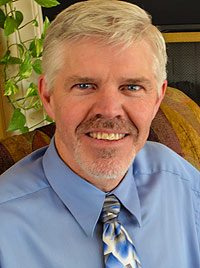Changing the Things We Can Change: Attitude and Stress Perception
If present trends continue, 1 in 3 children born in this century in the United States will develop diabetes. A full one-half of my patients have pre-diabetes using the hemoglobin A1C. The poorest populations in the United States suffer disproportionately from type 2 diabetes and obesity – medical conditions which are almost always preventable and reversible with targeted lifestyle management (ie, exercise, nutrition, stress reduction and attitude adjustment) and other inexpensive, mind-body solutions. This article will explore a breadth of proven and practical tools and techniques that you can use to improve your blood sugar control and thrive.
Clinical studies on obesity often use measurements of body mass index (BMI) instead of percent body fat. However, according to a Science Magazine editorial, “BMI is not an accurate measure of body fat content,” and, not surprisingly, “does not account for critical factors that contribute to health, such as where a person carries their fat, proportion of muscle to fat, and sex and racial differences in body composition.” Waist circumference or percent body fat is considered the best predictor of type 2 diabetes mellitus (T2D), compared to BMI.
Changing What Can Be Changed
Common contributors to diabetes and obesity that can be changed include attitude/consciousness, managing stress, poor nutrition, lack of proper exercise, hormone imbalance, intestinal permeability, environmental toxicity, neurotransmitter (brain chemical) imbalance, and poor sleep. Part 1 will focus on attitude and managing stress.
The Power of Attitude
The starting point is an attitude adjustment. As Viktor Frankl said, attitude is the only thing over which we have 100% control. Every person has the capacity to be grateful, forgive, and choose health. I frequently ask patients for their strongest “WHYs” to get and stay healthy. If one’s WHY is strong enough, than almost any “HOW” can be manageable. One strong WHY could be vigorously pursuing the end of diabetes in one’s family (the next 7 generations), or another may be to stay healthy enough to swim with your grandchildren in the lakes of North America!
Overcoming Stress and Anxiety
Increased abdominal obesity and binge eating is associated with increased levels of cortisol (one’s own perception of stress). The hormone, ghrelin, which stimulates increased food intake and fat mass, is increased by a stress-induced rise in cortisol.
Meditation can improve diabetes and insulin resistance. One study demonstrated a 20 mg/dL after eating blood sugar-lowering effect of a sitting, breathing meditation exercise on type 2 diabetes patients. The use of transcendental meditation (TM) for 16 weeks in CHD patients was also shown to improve insulin resistance and components of the metabolic syndrome.1 Laughter also confers benefits; a Japanese study showed that those who watched a brief comedy show after eating had lower glucose values than those who did not watch the program.
Feeling “stressed” involves perception and attitude. There is no rule that says a person must perceive a particular event in a certain way. What matters most is not so much what happens to a person, but rather the emotional meaning that is attached to the event. “Unearned suffering is redemptive,” said the Reverend Martin Luther King, Jr, who knew first-hand what “unearned suffering” was all about. More accurately, MLK’s saying might be amplified to “Unearned suffering can be redemptive.” Why? Because human beings have a choice! “Superman” Christopher Reeve, with his quadriplegia, and Holocaust and concentration camp survivor, Viktor Frankl, who unjustly lost just about everything, both had a choice – to become bitter as a result of their experiences, or to accept the challenge of transforming suffering into new life. History is filled with such examples.
Reducing stress and living abundantly can be accomplished by uncomplicating life and living simply. I tell my patients that we must light a candle instead of cursing the darkness. Instead of focusing on deficits (lack of money, poor genetics, the past, etc), focus on what can be done.
Reducing stress can also include lifestyle strategies such as: relaxation, meditation/prayer, guided imagery, exercise, breathing (eg, Buteyko), volunteering in the community, exercising non-judgment, striving to live in balance, and surrounding oneself with positive people who will inspire you!

Explore additional topics from Dr. Godby, ND, MA at Natural Wellness.
As a naturopathic doctor for the last 18 years, I have witnessed the power of a preventative lifestyle and naturopathic medicine to transform the health and lives of thousands of patients.
Sacramento Naturopathic
2530 J Street, Suite 100
Sacramento, CA 95816
Phone: (916) 446-2591
sac-nd.com/dr-dennis-godby-nd-ma
(21+ years strong)
Welcome to the brighter side!
Get in front of local customers! 24/7 (365)




















